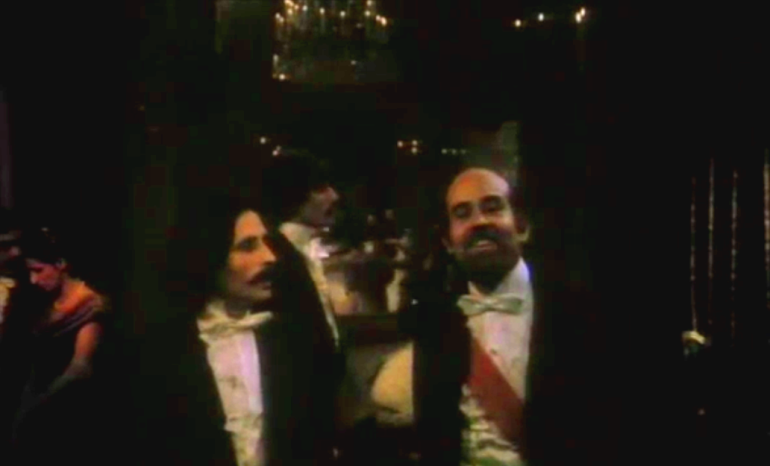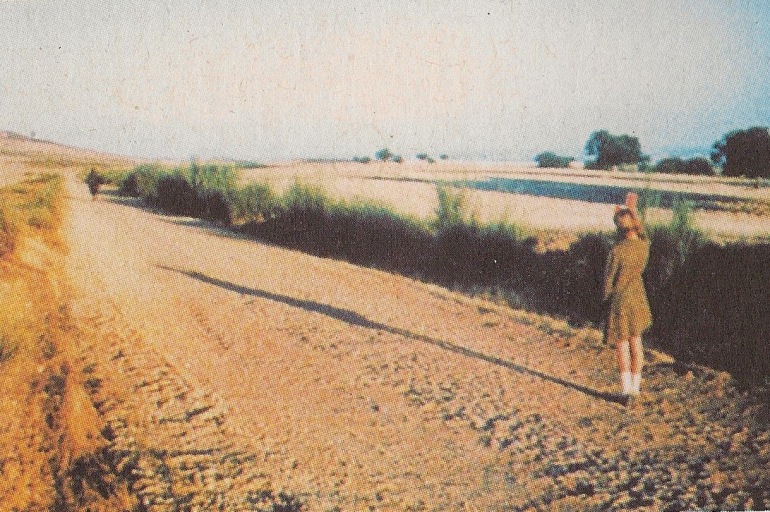THE POETRY OF THE EARTH. PORTUGUESE CINEMA: RITE OF SPRING
Gonzalo de Lucas

EOn the 17th of November of 1973, in the Grande Auditório Gulbenkian of Lisbon, the 'most memorable cinema session that ever happened in Portugal,' as João Bénard da Costa used to relate1, took place. Rome, Open City (Roma, città aperta, 1945), forbidden in the country back then, was shown that one time, in a copy without subtitles, with the presence of Roberto Rossellini and Henri Langlois. The public’s enthusiasm was so that it generated the clamor for an open Lisbon and the end of Salazar’s regime. During that popular reaction of the spectators, Langlois foresaw the dawn of the Carnation Revolution, which would take place four months later.
That projection was very important to boost the programming work that João Bénard da Costa would carry out later on at the Cinemateca Portuguesa, turning it into a source of filmmakers, a space in which life and cinema met and aesthetics did not forget their political dimension. Now that the majority of film archives in Europe are going through a time of cutbacks and marginalization, the example of Bénard da Costa is still extraordinary to reclaim the function of a film archive from the experiences it can generate.
The history of the grand Portuguese cinema is visible through the transmission of ways and methodologies of production, but above all through a relationship between cinema and the world in which the sensitivity facing the matter of reality and the effects of time on it is worked by images and sounds that generate openings between both sides. It is a story of filiations and encounters such as the ones that orbit around Rite of Spring (Acto da Primavera, 1963), Oliveira’s founding work in which filming Paulo Rocha and António Reis participated. In a way, the figures of Oliveira and Rossellini are not only the embryo of the best cinema that will be done from then onwards in Portugal, but of some of the ideas that will traverse the cinematographic modernity in the 70s and even later.
Of some of these filiations is what this issue is about, originated from the desire of watching and rewatching some of those films, and starting from the formal invention of Rite of Spring and its influence. Today Portuguese cinema is usually present in most festivals, but its profound and long history is still unknown. Even grand films such as Change One’s Life (Mudar de Vida, 1966), A Ilha dos Amores (1982) by Paulo Rocha, Trás-os-Montes (1976) or Ana (1983) by António Reis and Margarida Cordeiro, or Past and Present (O Passado e o Presente, 1972) or even Rite of Spring by Oliveira are exceptionally shown outside of Portugal2, not to say other films of less renown filmmakers, from Alberto Seixas Santos to Rita Azevedo Gomes. Nonetheless, every encounter with those films can have something of blooming, germination or blossoming of a cinema that works the “poetry of the earth3".

FOOTNOTES
1 / See for example 'A superficialidade dos homens,' by João Bénard da Costa, published in the dossier of the Brazilian magazine Foco: http://focorevistadecinema.com.br/FOCO1/benard-rossellini.htm
2 / It is important to point out that for some years now, the works as editor and programmer of Roberto Turigliatto, of Jaime Pena at the CGAI, the dossiers of the magazine Lumière dedicated to Rocha and Oliveira, or cycles such as Federico Rossin’s about the Portuguese revolution, to mention a few, are creating spaces for these encounters, their documentation and discussion.
3 / To recover the title of a beautiful book dedicated to Reis and Cordeiro: MOUTINHO, Anabela and DA GRAÇA, Lobo (1997). António Reis e Margarida Cordeiro. A poesia da terra. Faro: Cineclub Faro.

